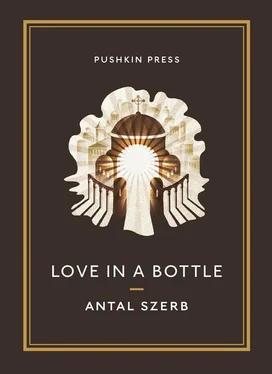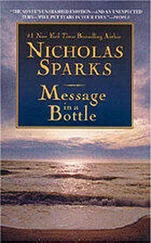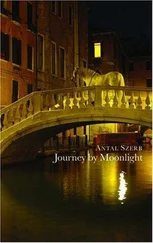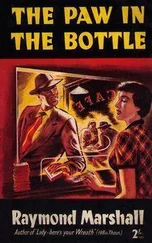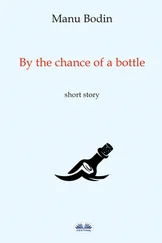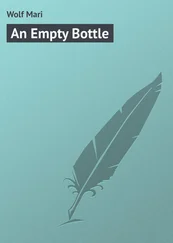Antal Szerb - Love in a Bottle
Здесь есть возможность читать онлайн «Antal Szerb - Love in a Bottle» весь текст электронной книги совершенно бесплатно (целиком полную версию без сокращений). В некоторых случаях можно слушать аудио, скачать через торрент в формате fb2 и присутствует краткое содержание. Год выпуска: 2013, Издательство: Pushkin Press, Жанр: Классическая проза, на английском языке. Описание произведения, (предисловие) а так же отзывы посетителей доступны на портале библиотеки ЛибКат.
- Название:Love in a Bottle
- Автор:
- Издательство:Pushkin Press
- Жанр:
- Год:2013
- ISBN:нет данных
- Рейтинг книги:5 / 5. Голосов: 1
-
Избранное:Добавить в избранное
- Отзывы:
-
Ваша оценка:
- 100
- 1
- 2
- 3
- 4
- 5
Love in a Bottle: краткое содержание, описание и аннотация
Предлагаем к чтению аннотацию, описание, краткое содержание или предисловие (зависит от того, что написал сам автор книги «Love in a Bottle»). Если вы не нашли необходимую информацию о книге — напишите в комментариях, мы постараемся отыскать её.
and
.
Love in a Bottle — читать онлайн бесплатно полную книгу (весь текст) целиком
Ниже представлен текст книги, разбитый по страницам. Система сохранения места последней прочитанной страницы, позволяет с удобством читать онлайн бесплатно книгу «Love in a Bottle», без необходимости каждый раз заново искать на чём Вы остановились. Поставьте закладку, и сможете в любой момент перейти на страницу, на которой закончили чтение.
Интервал:
Закладка:
1932
FIN DE SIÈCLE
THE CHESHIRE CHEESE PUB in London is famous for having remained exactly as it was when the great Dr Johnson, that commanding figure of eighteenth-century English literature, sat there and delivered his immortal banalities, so faithfully recorded for posterity by the assiduous Boswell. The most distinguished poets of the age have met there ever since. Towards the end of the last century, for example, it was here that Tyrconnel, Lionel Johnson, Ernest Dowson and John Davidson held their weekly reunions.
On this particular occasion only three of the quartet were present, Tyrconnel, Dowson and Johnson. Tyrconnel was holding forth. He was a languorous, deeply unconventional Irish poet, as signified by the single curl of silky black hair that strayed so casually over his forehead. Hardly a week went by without his having made some new mystical discovery, some fresh instance of telepathy, perhaps, or some interesting notes he had come across inserted by an archangel into a piece of Old Irish prose. He chatted away about such things with the easy familiarity and volubility with which others might discuss a football match. This was in marked contrast to Lionel Johnson, who would deliver his observations about the weather in the manner of a revelation: “There was a thick fog in Chelsea this morning,” he would regularly announce, and glare balefully around the room, his hand clapped on some invisible sword.
“You deal out a pack of cards marked with mystical symbols,” Tyrconnel was saying. “The important thing is the square grid on the back of the card. It gives you the matrix in which the secret meaning is contained. Then, if an adept studies the cards at a particular hour of the night, his visions will correspond directly with the symbols. If the card stands for Public Esteem, he will be looking at his future career. If he draws the symbol for Heaven, he will learn the nature of the greatest happiness that lies in store for him…”
“Very interesting,” observed Lionel Johnson, with his customary decisiveness.
Tyrconnel’s face reddened slightly.
“I wouldn’t be telling you all this, Johnson, if I hadn’t seen some extremely convincing experiments carried out in our little group.”
“In our little group” was a regular saying of his, though it was never quite clear in what species of secret institution or laboratory these improbable researches were conducted. Johnson and Dowson never asked. They were afraid that he might already have told them, only they hadn’t been listening at the time.
After this, Johnson spoke about his new Tractatus , in which he would show once and for all that Bloody Mary had been quite right to send the Protestant martyrs to the stake. Tyrconnel listened with great interest. He did not for a moment believe in Johnson’s Catholicism, any more than Johnson did in his mystical anecdotes. He knew that it was all part of the business of being a poet, the licensed eccentricity of the poet’s view of the world. The precise nature of the world view didn’t matter — what did was the burdensome honour of the vocation, in which verse forms amounted to dogma and symbols represented political affiliations.
Then came that memorable business with the Scots.
Davidson, the one Scottish member of the group, finally arrived. Without a word of forewarning he had brought along two of his fellow Scots — tall, thin, badly dressed young men with grey, baldly staring eyes. They sat themselves down with an air of embittered arrogance, the way Scots often do, and proceeded without the slightest inhibition to pour scorn on Tyrconnel’s mystical revelations. This did not particularly bother Tyrconnel — he was not a man who took himself seriously — but then one of the newcomers suddenly barked at Lionel Johnson:
“And why aren’t you drinking?”
“I never do,” Johnson replied coldly. “You know, when I was still quite young I once fell on my head…”
But his interlocutor was not going to let him digress. He made his contempt for Johnson’s asceticism abundantly clear. He poured scorn on everything he considered unhealthy, decadent, over-refined and self-consciously crafted. In his opinion only the Scottish peasantry were worth anything in this world, and no serious writer could get by without drawing on the ancient, undiluted wisdom of the Gaelic people and the primordial power of the ballad tradition.
The three lyric poets listened to this for some time, with polite smiles on their faces, much as St Sebastian had done on a similar occasion. They stroked and played with the dog under the table, then suddenly stood up and took their leave.
All three knew, without a word being said, that it was the end of their weekly reunions for ever. They could never again return to the Cheshire Cheese without exposing themselves to the risk of a further meeting with the two Scottish representatives of the Primal Force. They themselves were gentlemen of far greater refinement, fin de siècle to the core and Englishmen to boot, and they could think of absolutely nowhere else they might meet, that is to say, without asking Davidson to dispense with his Highland friends. Thus these convivial gatherings, of such great significance in the history of English literature, came to an end.
Having escorted Johnson home, Tyrconnel remained out in the fog, sensing the utter emptiness of his life. As he drifted from gas lamp to gas lamp a strange feeling gnawed away at him — the same sort of half-conscious preoccupation you get when a particularly attractive woman steps onto the train while you’re chatting to your friends: you hardly notice her, and no one quite realises why you all keep turning your heads in one direction, until eventually you spot her. But this particular concern, when he finally identified what it was, was not quite so appealing.
“What would happen,” he asked himself, numb with horror, “if Johnson really were serious about his Catholicism? Might that also mean that those two Scotsmen genuinely believe in their Life Force? Then I’m the only one… the only one…”
But he allowed the absurd idea to drop. His thoughts turned, rather more consolingly, to Dowson, the love poet of transcendent delicacy who, in real life, spent his time playing cards with the father of his beloved — a greengrocer — and chatting away, no doubt, in the lowest form of cockney. Such is human nature.
Thus he arrived at a certain nightclub. Here, behind the sleeping back of the early-retiring Victoria, the nocturnal decadence of a highly moral age seethed and bubbled away like a virulent organism in a sealed bottle. Tyrconnel was well known in the place, not as a mystical poet but as the son of his eminent father, who sent him large remittances every month. His personal decadence found partial expression in telling dirty stories to the Alhambra chorus girls, who pulled their chairs into a ring around him because they enjoyed them so much. But this simply intensified his inner emptiness, and he drank steadily to fill the void, if only physically.
Some time later he was joined by his countryman and fellow poet Oscar Wilde — devastatingly elegant, as always, in his tail-coat, and languidly witty as ever. He had just come from some place or other where he had been the life and soul of the party… but what frightfully hard work it was, keeping up his non-stop brilliance! With the audacity of an ageing voluptuary, and one eye on his audience, he set his hands to work on the chorus girls, all the while murmuring in Tyrconnel’s ear about his one great grief, his unrequited passion for a certain young earl, a blond to boot, to whom he penned sonnets of classical perfection the way Shakespeare once had. How mendacious are the ways of poets! Tyrconnel knew all about the seedy-looking stable boys and hotel flunkeys who hung around outside Wilde’s house, draining off his rapidly diminishing funds. That was the real truth about poor Oscar.
Читать дальшеИнтервал:
Закладка:
Похожие книги на «Love in a Bottle»
Представляем Вашему вниманию похожие книги на «Love in a Bottle» списком для выбора. Мы отобрали схожую по названию и смыслу литературу в надежде предоставить читателям больше вариантов отыскать новые, интересные, ещё непрочитанные произведения.
Обсуждение, отзывы о книге «Love in a Bottle» и просто собственные мнения читателей. Оставьте ваши комментарии, напишите, что Вы думаете о произведении, его смысле или главных героях. Укажите что конкретно понравилось, а что нет, и почему Вы так считаете.
